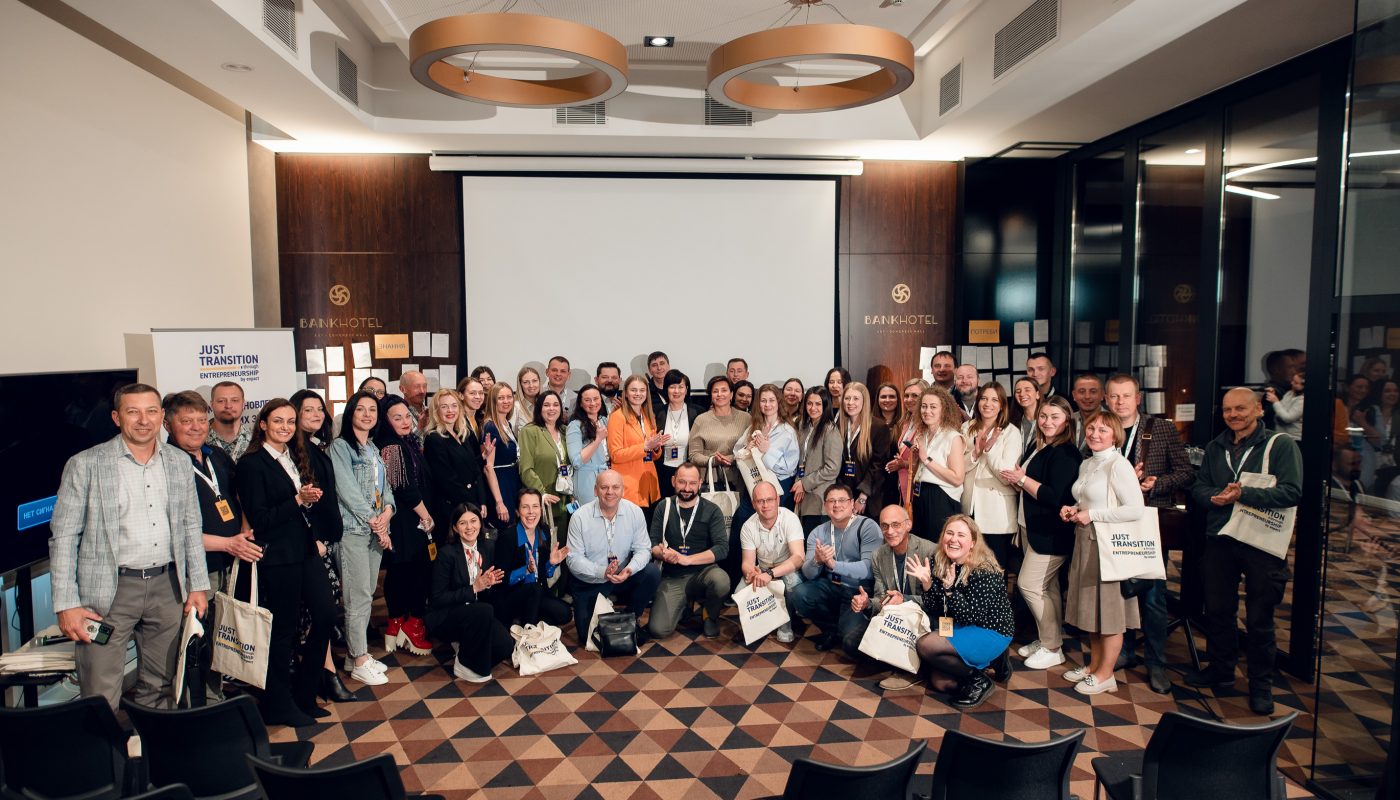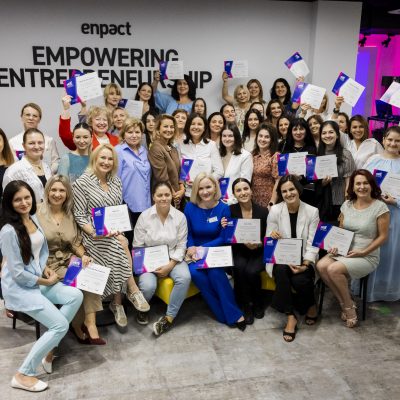The first track of our project in Ukraine to support micro-, small, and medium enterprises is now up and running!
75 entrepreneurs from the coal mining regions in Volyn and Lviv Oblasts in Ukraine joined us online and in person in Lviv for the kickoff event and first meetup of the Businesses Track of the Just Transition through Entrepreneurship project.

Over the next six months, the participants will take part in regular workshops on various topics, including leadership in times of crisis, sustainability and circular economy, digital marketing, and business strategy. They will receive monthly financial support of 500 Euros and have the chance to connect with a dedicated mentor to guide and consult them through their specific business challenges.
A key aspect of the program will be the focus on network development and providing opportunities to exchange with experts, mentors and fellow entrepreneurs. They will also receive support with EU market access, as EU market integration can offer a lot of opportunities for Ukrainian SMEs to adapt and grow beyond the repercussions they endured.
Selected from over 190 applications, the participants’ businesses cover a wide range of sectors, including information and technology, agriculture, wholesale and retail, manufacturing, education, and more.
One of the participants is Ihor Bondarenko, an entrepreneur-engineer who focuses on creating energy-efficient products and innovative materials for various uses. At the age of 55, Ihor lost his work and home in the Luhansk region and moved to Chervonohrad after the full-scale invasion with the hopes of starting a new life from scratch.
Starting over his life was also the experience of another entrepreneur, Dmytro Ivanov, who lost his printing house in the Donetsk region due to the Russian invasion and moved to Volyn with only one bag in tow. For him, the program is a chance to rebuild the business somewhere new.
Natalya Belimova, who was also internally displaced, survived two relocations with her family due to the Russian war of aggression on Ukraine. Originally coming from the Donetsk region, her father and brother were coal miners. After moving to Lutsk, she shifted her career from engineering to start her own craft candy production business.
7% of the participating businesses work in agriculture, a key sector for survival, continuation and rebuilding, and we have received a lot of interest from representatives of agricultural businesses in the city of Novovolynsk in the Volyn region. Some had been involved in farming and harvesting from the start, while others took to the sector as a result structural changes.
Originally, Sergiy Melnychuk planned to continue in the footsteps of his father and grandfather and studied to become a coal miner. However, after the mine closure, he started to grow and sell strawberries and is very passionate about extending his business opportunities.

Former coal miner Oleksandr Holivets was also affected by the coal mine closure. He lost his job and started looking for new opportunities, eventually growing and selling fruits. He considers himself a self-starter, and he joined the project with the intention of growing his knowledge and gaining more diverse expertise in business development.
Not all agriculture is farming. Yulia Yutovets recently became an entrepreneur, and her business is manufacturing organic soil using Californian worms. She is most excited about the networking aspect of the project and being part of a strong business community.
Keep an eye on enpact’s social media channels throughout May to learn more about the participants’ and their work, and about the next track of the Just Transition through Entrepreneurship program.
To get involved as a mentor, expert or partner, reach out to us via justtransition@enpact.org with the subject: “[Your name] – Program Support Offer”.
The project Just Transition through Entrepreneurship was created to provide support for aspiring entrepreneurs, existing entrepreneurs, and entrepreneurial support organizations to navigate structural changes, economic challenges, and war-induced disruptions. Coal regions, such as Volyn and Lviv oblasts, face increased uncertainty due to the transition from coal and plant closures. Therefore, providing local businesses in the region with access to direct financial support, training and upskilling is crucial so the necessary changes to limit global warming do not negatively impact local employees and economy.
The ‘Just Transition through Entrepreneurship’ Project is funded by the German Federal Ministry for Economic Affairs and Climate Action (BMWK) and supported by the Deutsche Gesellschaft für Internationale Zusammenarbeit (GIZ) GmbH. The project is implemented by the non-profit organization enpact.





